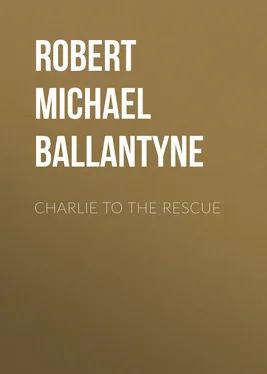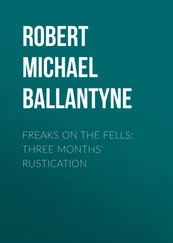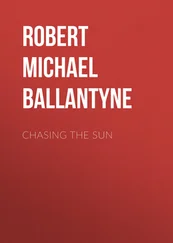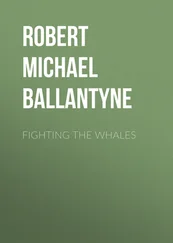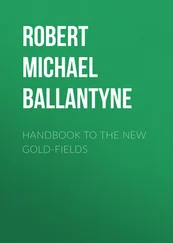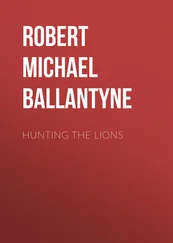Robert Michael Ballantyne - Charlie to the Rescue
Здесь есть возможность читать онлайн «Robert Michael Ballantyne - Charlie to the Rescue» — ознакомительный отрывок электронной книги совершенно бесплатно, а после прочтения отрывка купить полную версию. В некоторых случаях можно слушать аудио, скачать через торрент в формате fb2 и присутствует краткое содержание. Жанр: Детские приключения, literature_19, foreign_antique, foreign_prose, foreign_children, на английском языке. Описание произведения, (предисловие) а так же отзывы посетителей доступны на портале библиотеки ЛибКат.
- Название:Charlie to the Rescue
- Автор:
- Жанр:
- Год:неизвестен
- ISBN:нет данных
- Рейтинг книги:4 / 5. Голосов: 1
-
Избранное:Добавить в избранное
- Отзывы:
-
Ваша оценка:
- 80
- 1
- 2
- 3
- 4
- 5
Charlie to the Rescue: краткое содержание, описание и аннотация
Предлагаем к чтению аннотацию, описание, краткое содержание или предисловие (зависит от того, что написал сам автор книги «Charlie to the Rescue»). Если вы не нашли необходимую информацию о книге — напишите в комментариях, мы постараемся отыскать её.
Charlie to the Rescue — читать онлайн ознакомительный отрывок
Ниже представлен текст книги, разбитый по страницам. Система сохранения места последней прочитанной страницы, позволяет с удобством читать онлайн бесплатно книгу «Charlie to the Rescue», без необходимости каждый раз заново искать на чём Вы остановились. Поставьте закладку, и сможете в любой момент перейти на страницу, на которой закончили чтение.
Интервал:
Закладка:
This leak in the worsted press, strange to say, increased wonderfully just after the wreck described in a previous chapter, and the rivulet to which it gave rise flowed in the direction of the back-door of the house, emptying itself into a reservoir which always took the form of a little elderly lady, with a plain but intensely lovable countenance, who had been, perhaps still was, governess in a family in a neighbouring town where Mrs Leather had spent some of her “better days.” Her name was Molloy.
Like a burglar Miss Molloy came in a stealthy manner at irregular intervals to the back-door of the house, and swept the press of its contents, made them up into a bundle of enormous size, and carried them off on the shoulders of an appropriately disreputable blackguard boy—as Shank called him—whom she retained for the purpose. Unlike a burglar, however, Miss Molloy did not “bolt with the swag,” but honestly paid for everything, from the hugest pair of gentlemen’s fishing socks to the smallest pair of children’s cuffs.
What Miss Molloy did with this perennial flow of woollen work, whom she came from, where she went to, who discovered her, and why she did it, were subjects of inquiry which baffled investigation, and always simmered in the minds of Shank and May, though the mind of Mrs Leather herself seemed to be little if at all exercised by it. At all events she was uncommunicative on the point, and her children’s curiosity was never gratified, for the mother was obdurate, and, torture being illegal at that time in England, they had no means of compelling disclosure. It was sometimes hinted by Shank that their little dog Scraggy—appropriately named!—knew more than he chose to tell about the subject, for he was generally present at the half-secret interviews, and always closed the scene with a sham but furious assault on the ever contemptuous blackguard boy. But Scraggy was faithful to his trust, and revealed nothing.
“I can’t tell you how glad I am, Mrs Leather, about Shank’s good fortune,” said Charlie, with a gentle shake of the hand, which Mr Crossley would have appreciated. Like the Nasmyth steam-hammer, which flattens a ton of iron or gently cracks a hazel-nut, our Herculean hero could accommodate himself to circumstances; “as your son says, it has been a lucky wreck for us .”
“Lucky indeed for him ,” responded the lady, instantly resuming her knitting, which she generally kept down near her lap, well hidden by the table, while she looked at her visitor and talked, “but not very pleasant for those who have lost by it.”
“Pooh! mother, nobody has lost by it,” said Shank in his free-and-easy style. “The owners don’t lose, because of course it was insured; and the Insurance Companies can’t be said to lose, for the value of a small brig will be no more felt by them than the losing of a pin would be felt by yourself; and the captain won’t lose—except a few sea-garments and things o’ that kind—for he has been appointed to another ship already. By the way, mother, that reminds me that Charlie has also got a situation through this lucky wreck, for Captain Stride feels so grateful that he has offered him the situation of supercargo in his new ship.”
For once Mrs Leather’s knitting-needles came to a sudden stop, and she looked inquiringly at her young friend. So did May.
“Have you accepted it?”
“Well, yes. I have.”
“I’m so sorry,” said May; “I don’t know what Shank will do without you.”
At that moment a loud knocking was heard at the door. May rose to open it, and Mrs Leather looked anxiously at her son.
A savage undertoned growl and an unsteady step told all too plainly that the head of the house had returned home.
With sudden interest in worsted fabrics, which he was far from feeling, Charlie Brooke turned his back to the door, and, leaning forward, took up an end of the work with which the knitter was busy.
“That’s an extremely pretty pattern, Mrs Leather. Does it take you long to make things of the kind?”
“Not long; I—I make a good many of them.”
She said this with hesitation, and with her eyes fixed on the doorway, through the opening of which her husband thrust a shaggy dishevelled head, with dissipation stamped on a countenance which had evidently been handsome once.
But Charlie saw neither the husband’s head nor the poor wife’s gaze, for he was still bending over the worsted-work in mild admiration.
Under the impression that he had not been observed, Mr Leather suddenly withdrew his head, and was heard to stumble up-stairs under the guidance of May. Then the bang of a door, followed by a shaking of the slimly-built house, suggested the idea that the poor man had flung himself on his bed.
“Shank Leather,” said Charlie Brooke, that same night as they strolled on the sea-shore, “you gave expression to some sentiments to-day which I highly approved of. One of them was ‘Speak out your mind, and fear nothing!’ I mean to do so now, and expect that you will not be hurt by my following your advice.”
“Well!” exclaimed Shank, with a dubious glance, for he disliked the seriousness of his friend’s tone.
“Your father—” began Charlie.
“Please don’t speak about him ,” interrupted the other. “I know all that you can say. His case is hopeless, and I can’t bear to speak about it.”
“Well, I won’t speak about him, though I cannot agree with you that his case is hopeless. But it is yourself that I wish to speak about. You and I are soon to separate; it must be for a good long while—it may be for ever. Now I must speak out my mind before I go. My old playmate, school-fellow, and chum, you have begun to walk in your poor father’s footsteps, and you may be sure that if you don’t turn round all your hopes will be blasted—at least for this life—perhaps also for that which is to come. Now don’t be angry or hurt, Shank. Remember that you not only encouraged me, but advised me to speak out my mind.”
“Yes, but I did not advise you to form a false, uncharitable judgment of your chum,” returned Leather, with a dash of bitterness in his tone. “I admit that I’m fond of a social glass, and that I sometimes, though rarely, take a little—a very little—more than, perhaps, is necessary. But that is very different from being a drunkard, which you appear to assume that I am.”
“Nay, Shank, I don’t assume that. What I said was that you are beginning to walk in your dear father’s footsteps. No man ever yet became a drunkard without beginning . And I feel certain that no man ever, when beginning, had the most distant intention or expectation of becoming a drunkard. Your danger, dear old fellow, lies in your not seeing the danger. You admit that you like a social glass. Shank, I candidly make the same admission—I like it,—but after seeing your father, and hearing your defence, the danger has been so deeply impressed on me , that from this hour I resolve, God helping me, never more to taste a social glass.”
“Well, Charlie, you know yourself best,” returned his friend airily, “and if you think yourself in so great danger, of course your resolve is a very prudent one; but for myself, I admit that I see no danger, and I don’t feel any particular weakness of will in regard to temptation.”
“Ah, Shank, you remind me of an eccentric old lady I have heard of who was talking with a friend about the difficulties of life. ‘My dear,’ said the friend, ‘I do find it such a difficult thing to resist temptation—don’t you?’ ‘No,’ replied the eccentric old lady, ‘I don’t, for I never resist temptation, I always give way to it!’”
“I can’t quite make out how your anecdote applies to me, Charlie.”
Читать дальшеИнтервал:
Закладка:
Похожие книги на «Charlie to the Rescue»
Представляем Вашему вниманию похожие книги на «Charlie to the Rescue» списком для выбора. Мы отобрали схожую по названию и смыслу литературу в надежде предоставить читателям больше вариантов отыскать новые, интересные, ещё непрочитанные произведения.
Обсуждение, отзывы о книге «Charlie to the Rescue» и просто собственные мнения читателей. Оставьте ваши комментарии, напишите, что Вы думаете о произведении, его смысле или главных героях. Укажите что конкретно понравилось, а что нет, и почему Вы так считаете.
